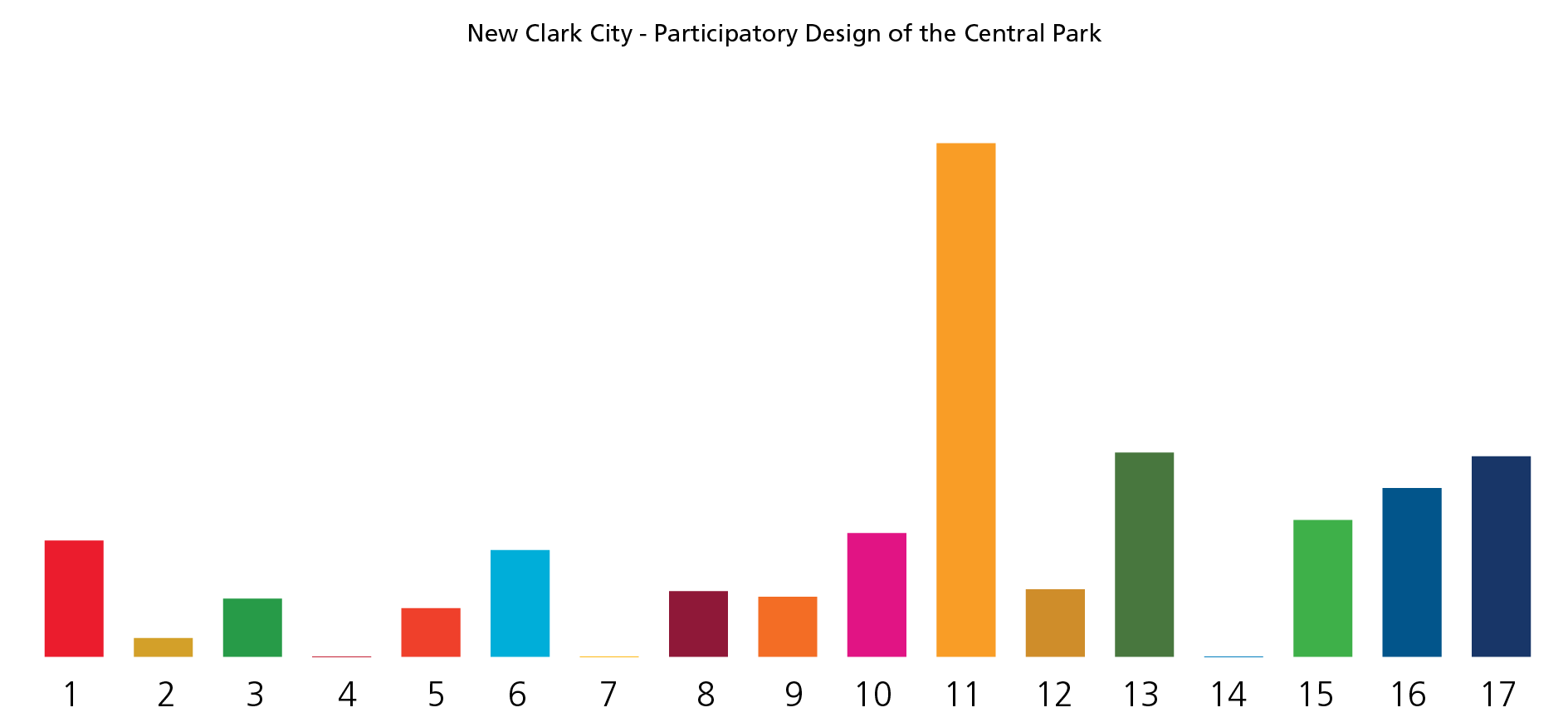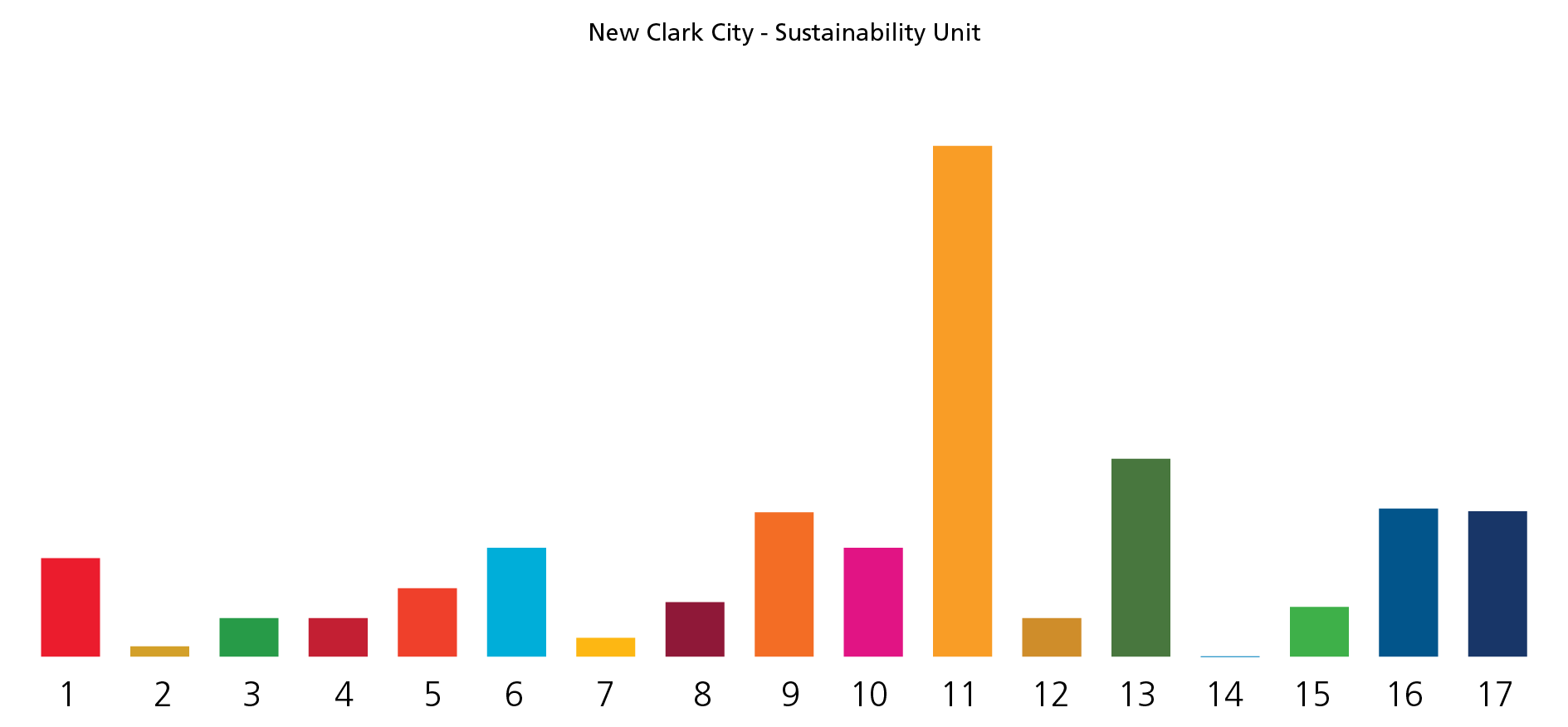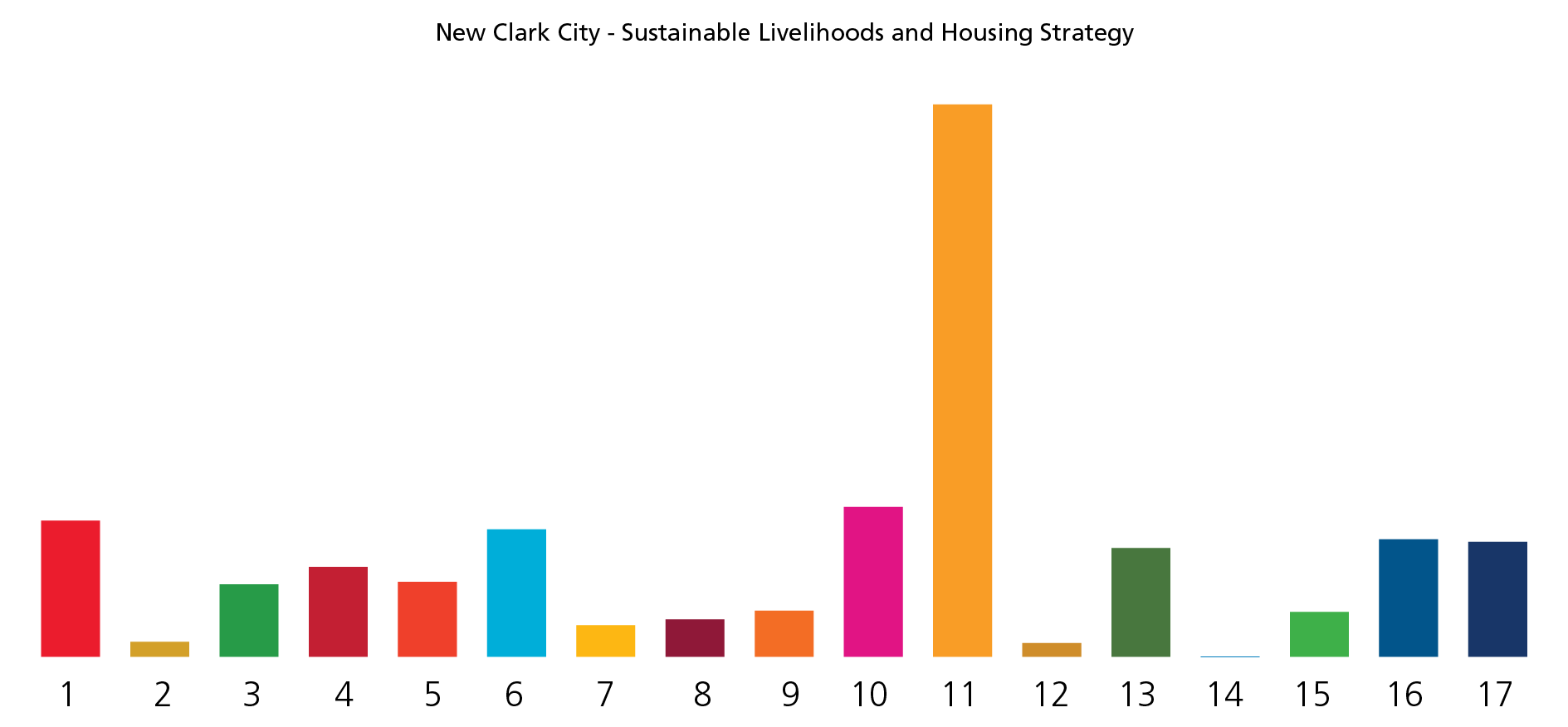Overview
New Clark City is a new planned city currently being developed on a former military base in the Philippines by the Bases Conversion and Development Authority (BCDA) and various private sector companies. The city is expected to be the country’s first smart, resilient and green metropolis. It aims to address growing environmental problems caused by climate change, by being disaster resilient in a region that has been heavily impacted by natural disasters. New Clark City offers a unique opportunity to showcase good and sustainable urban planning in the Philippines by enhancing public space availability, encouraging the use of non-motorised ways of transport and the creation of mixed use and inclusive developments.
However, the future development shows a lack of affordable housing provision, mixed-use planning and walkable neighbourhoods, adequate streets and lack of baseline data upon which to base strategic planning. The city proposes a development that is not linked to population growth and lacks strategy on how new public infrastructure will match the needs of the new residents in the city. There is also unclarity of how the new development will integrate the existing population living in the planned area for development. Strategic planning is significantly hampered by a governance system that includes many different actors involved in the planning and design of the area but which lacks a solid common framework that guides the development. The Global Future Cities Programme aims to address these challenges by creating a Sustainability Unit to create capacity within BCDA for strategic planning, sustainable urban development and monitoring and evaluation. A sustainable design of the central park will showcase the value of enhancing public space provision in the new planned city. A housing strategy will showcase how the existing community in the area can be integrated within the new city.
Challenges
Projects
1 Participatory Design of the Central Park
View DetailsThe design of the Central Park will be an opportunity to showcase the value of enhancing public space provision in new planned cities. At the same time, it will demonstrate the value of public space in the Philippines by showcasing a model of green, inclusive, safe and accessible public space that could be replicated in other cities in the country. This is especially pertinent in the context of the Philippines where public space generally is not adequately provided and protected.
Project Timeline
-
Charrette
August 2018 -
Validation Workshop
November 2018 -
MoU signing
-
Kick-off Meetings
November 2019 -
SDG Project Assessment Tool Tailoring Workshop
January 2020
SDG TOOL

2 NCC Sustainability Unit
View DetailsA Sustainability Unit will be established with the objective to contribute to building the capacity within the Authority as a development entity and implementer. The Unit will strengthen the overall strategic planning approach as well as the introduction and establishment of solid frameworks, regulations and guidelines that collectively will promote sustainable urban development. In this sense, the intervention would have a capacity-building component while also informing the development and implementation of the masterplan through recommendations, guidelines, regulations and further developing the KPIs into measurable benchmarks.
Project Timeline
-
Charrette
August 2018 -
Validation Workshop
November 2018 -
MoU signing
-
Kick-off Meetings
November 2020 -
SDG Project Assessment Tool Tailoring Workshop
November 2020
SDG TOOL

3 Sustainable Livelihoods and Housing Strategy
View DetailsThe Housing strategy aims to showcase how the existing community in the area can be integrated in the new development. It also aims to integrate diverse beneficiary groups taking into account age, family structures and affordability. The housing strategy for the existing community can be addressed through a participatory process, the gathering of baseline data and information and the development of a resettlement strategy that is fair and adequately compensates for the losses in the community.
Project Timeline
-
Charrette
August 2018 -
Validation Workshop
November 2018 -
MoU signing
-
Kick-off Meetings
November 2020 -
SDG Project Assessment Tool Tailoring Workshop
November 2020
SDG TOOL

